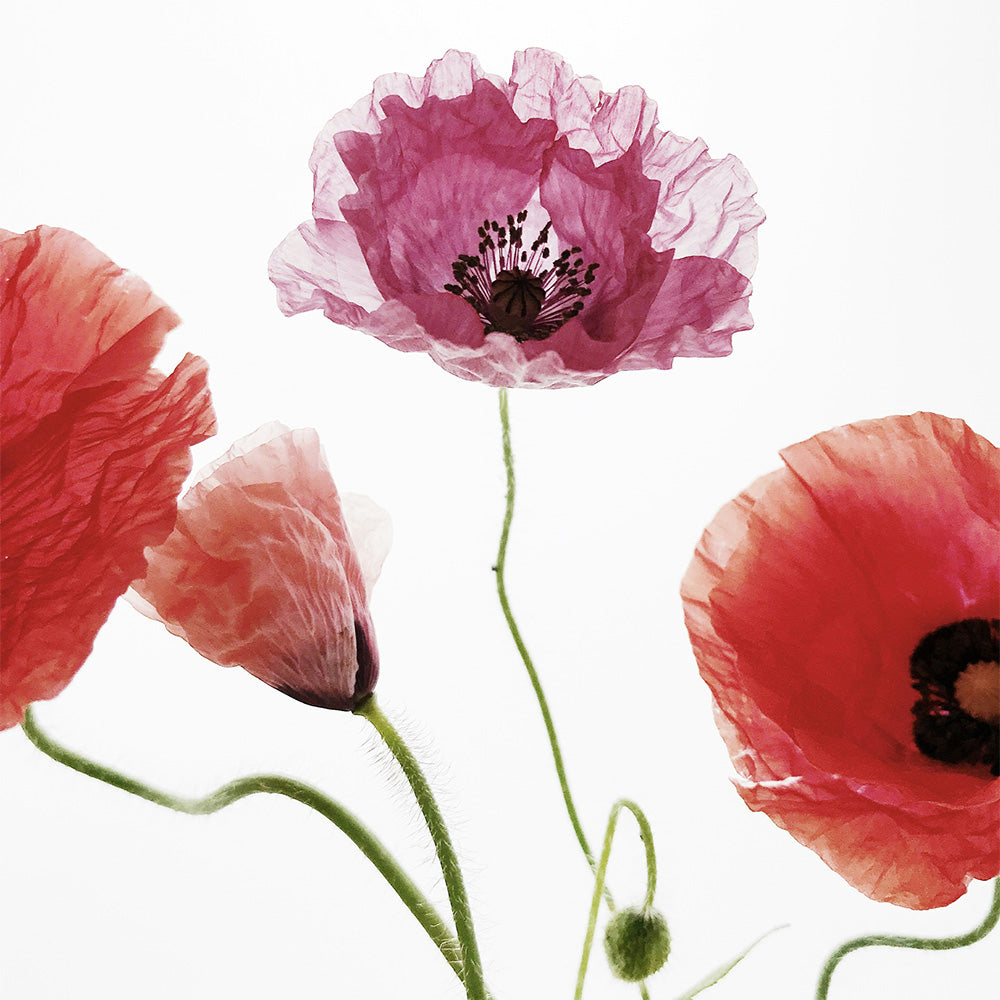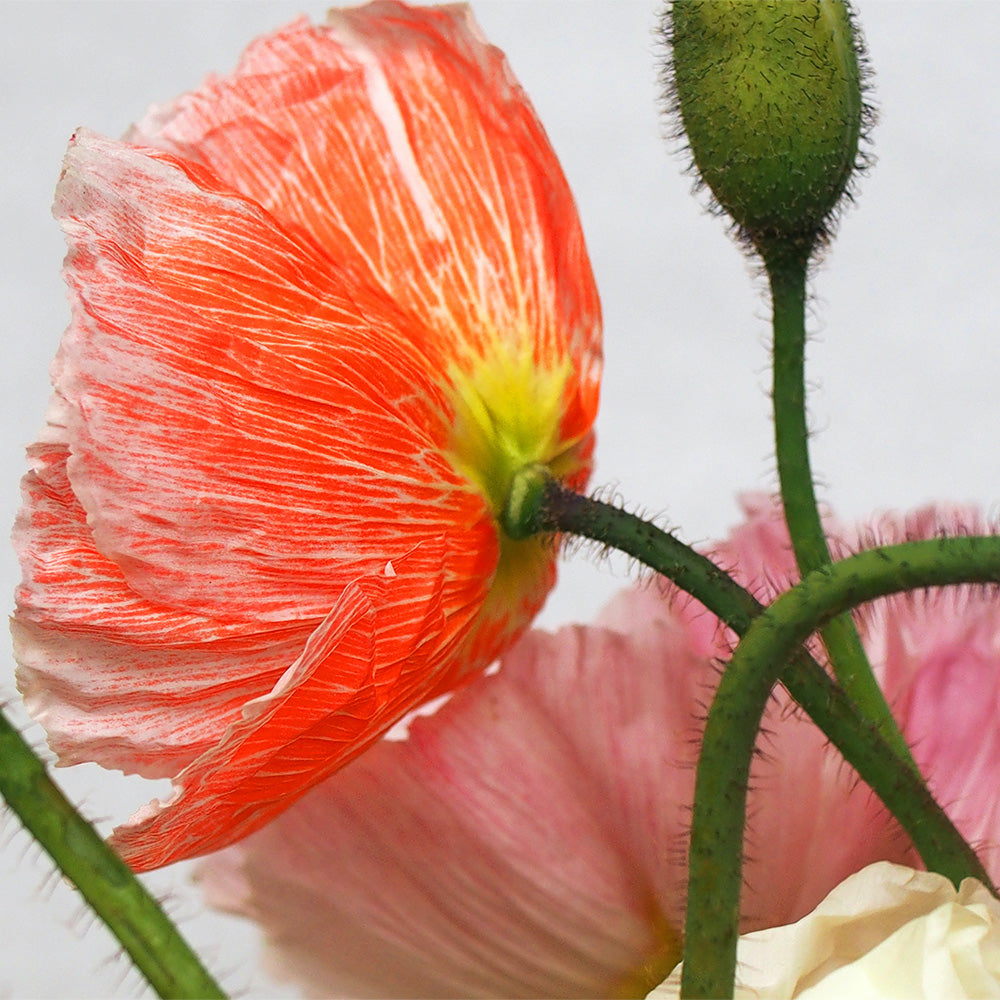
Gratitude as Self-Care: Nourishing Your Spirit in a Hectic World
In the whirlwind of our daily lives, where schedules overflow and to-do lists seem to multiply, it's easy to overlook the simple pleasures that surround us. Yet, right in front of us lies a powerful tool for nourishing our spirits and recalibrating our minds: gratitude.
Far from being just a fleeting sentiment, gratitude is a transformative practice that can serve as a cornerstone of self-care, offering a sanctuary of peace in our hectic world.
In this Gratitude Guide
- Gratitude is a powerful and useful tool to help catch us when we are spiraling with negative thoughts.
- Negative thinking is powerful, too; Learn why it’s so hard to control.
- Some interesting evidence-based research shows that practicing gratitude regularly can benefit our mental health.
- Initiating a gratitude practice is simple and hard at the same time.
- Let’s explore this together!
Understanding Negative Thinking Patterns
Negative thinking patterns can have a significant impact on our mental health and overall well-being.
These patterns are often fueled by negative thoughts, which can quickly spiral out of control and affect our mood, behavior, and perception of the world.
One reason negative thoughts tend to dominate our thinking is due to the negativity bias. This bias is a natural tendency of our brains to pay more attention to negative stimuli than positive ones.
It evolved as a survival mechanism to help us identify potential threats in our environment.
However, in today's society, this bias can lead to an excessive focus on negative aspects of our lives and an overemphasis on potential risks or dangers.
Negative thinking patterns can also give rise to negative emotions such as sadness, anxiety, and anger. These emotions can further perpetuate our negative thinking, creating a vicious cycle that is difficult to break.
The science behind negativity bias
The negativity bias is deeply ingrained in our brain function and has its roots in evolutionary psychology.
Our brains are wired to prioritize negative information and experiences in order to protect us from potential threats and ensure our survival.
From an evolutionary perspective, it made sense for our ancestors to be more attuned to negative stimuli such as predators or dangerous situations.
Those who were hyper-vigilant to potential threats were more likely to survive and pass on their genes.
Neurologically, the negativity bias is associated with the amygdala, a part of the brain responsible for processing emotions, particularly fear and anxiety.
The amygdala is highly sensitive to negative stimuli and can trigger a cascade of physiological responses that prepare us for fight, flight, or freeze reactions.
Additionally, research has shown that negative emotions are processed differently in the brain compared to positive emotions.
Negative emotions tend to activate the brain's stress response system, leading to increased activation of the amygdala and the release of stress hormones such as cortisol.
Recognizing your own negative thought cycles
Often, we may not even be fully aware of the negative thoughts that are dominating our thinking.
One way to become more aware of our negative thought cycles is to practice mindfulness.
Mindfulness involves paying attention to the present moment, without judgment or attachment.
By bringing our focus to the present moment, we can observe our thoughts and emotions without getting caught up in them.
Keeping a journal or writing down our negative thoughts can also be helpful in recognizing our thought patterns.
By externalizing our thoughts and putting them on paper, we gain distance from them and can observe them more objectively.
This can provide valuable insights into the themes or triggers that lead to negative thinking and help us develop strategies to counteract them.
The Role of Gratitude in Mental Health
Gratitude plays a crucial role in promoting positive emotions and improving our mental health.
When we practice gratitude, we shift our focus from what is lacking in our lives to what we have to be thankful for.
This shift in perspective can have a profound impact on our overall well-being.
Research has shown that gratitude activates the brain's reward system, leading to the release of dopamine, a neurotransmitter associated with feelings of pleasure and reward.
By cultivating an attitude of gratitude, we can experience an increase in positive emotions such as happiness, contentment, and satisfaction.
Gratitude also helps to counteract negative emotions by promoting a sense of abundance and appreciation.
When we focus on what we are grateful for, we cultivate a mindset of positivity and resilience, which can help us navigate challenging situations with a little more grace.
Evidence-based benefits of a gratitude practice
Numerous studies have demonstrated the positive impact of a gratitude practice on mental health and overall well-being. Research has shown that regularly practicing gratitude can have the following benefits:
- Improved mental health: Gratitude has been linked to reduced symptoms of depression, anxiety, and stress.
- Increased happiness: Gratitude practices have been found to boost feelings of happiness and life satisfaction.
- Enhanced relationships: Expressing gratitude towards others can strengthen relationships and foster a sense of connection and appreciation.
- Improved sleep: Gratitude has been shown to improve the quality and duration of sleep, leading to better overall well-being.
- Increased resilience: Gratitude practices can help individuals develop resilience and cope with adversity more effectively.
By incorporating gratitude into our daily lives, we can tap into these evidence-based benefits and experience greater well-being and positivity.
Simple steps to cultivate gratitude daily
Cultivating a habit of gratitude involves incorporating simple yet powerful steps into a routine.
By focusing on the small things and being present in the moment, we can shift our attention away from negativity and cultivate a more positive mindset.
One effective practice is to keep a gratitude journal. Each day, take a few minutes to write down three things you are grateful for.
These can be big or small, ranging from a beautiful sunset to a kind gesture from a loved one. The act of consciously acknowledging and appreciating these things helps to rewire your brain to focus on the positive aspects of your life.
Another way to cultivate gratitude is to practice mindfulness. By being fully present in the moment, you can become more aware of the small moments of joy and beauty that often go unnoticed.
Take time to savor your morning coffee, listen to the sound of birds singing, or feel the warmth of the sun on your skin.
Incorporating these simple steps into your daily routine can help make gratitude a habit and promote a more positive and grateful mindset.
A 60-Second Gratitude Practice Explained
In our busy lives, finding time for gratitude can sometimes feel challenging.
However, incorporating a 60-second gratitude practice into your day can quickly and effectively shift your mindset and cultivate positivity.
The 60-second gratitude practice involves taking a minute each day to reflect on three things you are grateful for.
It can be done at any time, whether it's in the morning, during a break, or before bed.
Simply pause, close your eyes if you'd like, and bring to mind three things you are grateful for. It could be as simple as a good cup of coffee, a loving relationship, or a beautiful sunset.
By consciously focusing on gratitude for just a minute each day, you train your brain to look for the positive aspects of your life and cultivate a more positive mindset overall.
Step-by-step guide to the practice
Here is a step-by-step guide to the 60-second gratitude practice:
- Find a quiet and comfortable space where you can take a minute to yourself.
- Close your eyes if you'd like, and take a few deep breaths to center yourself.
- Bring to mind three things you are grateful for. These can be specific moments, experiences, people, or even small things like a good cup of coffee or a warm hug.
- As you reflect on each item, really try to feel the gratitude in your heart and allow yourself to fully appreciate it.
- Take a moment to extend your gratitude beyond yourself. Think about someone in your life who has been kind or supportive, and mentally thank them for their presence.
- Open your eyes and carry the feeling of gratitude with you throughout the day.
By incorporating this simple practice into your daily routine, you can shift your mindset and cultivate a more positive and grateful outlook. It only takes a minute, but the impact can be profound, setting the tone for a great day ahead.
Tips for making it a habit
Establishing a gratitude practice as a habit takes time and consistency. Here are some tips to help you make gratitude a regular part of your routine:
- Set a specific time each day: Choose a specific time of day to practice gratitude, such as morning or evening. Set a reminder on your phone or use an alarm clock to prompt you to take a moment for gratitude.
- Keep a gratitude journal: Use a dedicated notebook or a gratitude journal app to jot down three things you are grateful for each day. Make it a habit to write in your journal before bed or first thing in the morning.
- Share your gratitude with others: Expressing gratitude to others not only benefits them but also reinforces your own gratitude practice. Send a thank-you note, call a loved one to express your appreciation, or simply say "thank you" more often.
- Create visual reminders: Place sticky notes or inspirational quotes in visible locations throughout your home or workspace. These visual reminders can serve as cues to pause and reflect on gratitude throughout the day.
- Practice mindfulness: Incorporate moments of mindfulness into your daily routine. Take a few deep breaths and bring your attention to the present moment. Notice the small joys and blessings in your surroundings.
By implementing these tips and making gratitude a consistent practice, you can establish it as a habit and experience the transformative power of gratitude in your daily life.
Overcoming Challenges in Maintaining Gratitude
Maintaining a gratitude practice can sometimes be challenging, especially during difficult times or when faced with negative situations.
However, by cultivating resilience and adopting a positive mindset, we can overcome these challenges and continue to reap the benefits of gratitude.
During challenging times, it can be helpful to remind ourselves of the positive aspects of our lives and the things we are grateful for.
Reframing negative situations and finding silver linings can shift our perspective and help us maintain gratitude.
Additionally, practicing self-care and self-compassion is crucial.
Being kind to ourselves, even when things don't go as planned, can help us stay grounded and maintain a positive outlook.
By acknowledging and actively working through these challenges, we can continue to cultivate gratitude and experience its transformative power in our lives.
Staying motivated: Keeping gratitude fresh and meaningful
Staying motivated to practice gratitude regularly is essential to reap its benefits. Here are some strategies to keep gratitude fresh and meaningful:
Firstly, vary your gratitude practice to avoid monotony.
Instead of simply listing things you're grateful for, try incorporating different approaches like writing thank-you notes or reflecting on specific moments of gratitude.
Secondly, infuse your gratitude practice with positivity by focusing on the positive emotions and experiences associated with gratitude.
Reflecting on how gratitude makes you feel and the positive impact it has on your life can fuel your motivation to continue practicing it.
Thirdly, make gratitude a habit by incorporating it into your daily routine.
Set aside dedicated time each day to express gratitude, whether through journaling, meditation, or simply verbalizing your appreciation.
Finally, find inspiration from others who practice gratitude. Seek out books, podcasts, or online communities that share stories and experiences related to gratitude.
Engaging with like-minded individuals can provide support and motivation to sustain your gratitude practice.
The Impact of Gratitude on Women's Well-being
Gratitude has a significant impact on women's well-being, promoting self-empowerment and fostering positive body image.
Research shows that practicing gratitude enhances women's mental health, leading to reduced stress levels, improved mood, and increased overall well-being.
It helps women cultivate a positive mindset and develop resilience in the face of challenges.
Furthermore, gratitude can also positively influence women's body image.
By shifting the focus from societal beauty standards towards appreciating their bodies and what they are capable of, women can develop a healthier and more positive perception of themselves.
Gratitude fosters self-acceptance and self-love, promoting a more balanced and positive body image.
It’s a Journey
While negative thoughts may never go away completely, developing a gratitude practice can loosen their grip.
Regularly appreciating the good in life, even in small doses, is a powerful way to cultivate a more positive mindset.
As you shift your focus to all you have to be thankful for, you open the door to greater joy, peace, and overall well-being.
Frequently Asked Questions
How can I remind myself to practice gratitude daily?
To remind yourself to practice gratitude daily, incorporate visual cues such as post-it notes or gratitude reminders on your phone.
Set specific times during the day to focus on gratitude, such as during meals or before bedtime.
Creating a gratitude journal or using gratitude apps can also help establish a daily gratitude practice.
What if I don't feel grateful?
If you don't feel grateful, acknowledge and validate your negative emotions.
Instead of forcing gratitude, focus on identifying small positive aspects in your life.
Cultivate a mindset of resilience and self-compassion, allowing yourself to experience and process negative emotions while remaining open to finding gratitude in unexpected places.
How does gratitude differ from positive thinking in terms of effectiveness?
While positive thinking involves focusing on positive thoughts and affirmations, gratitude goes a step further by actively appreciating and expressing gratitude for what one has.
Gratitude allows for a deeper and more meaningful connection to positive experiences and has been shown to have a more lasting and profound impact on mental health and overall well-being.
How does negativity impact mental health and well-being?
Negative thinking patterns can lead to stress, anxiety, and low mood. Understanding these cycles is crucial for cultivating gratitude and shifting towards positivity.
How can I identify when I'm slipping into negative thinking patterns?
Pay attention to your inner dialogue throughout the day. Are you constantly criticizing yourself? Catastrophizing about future events? Ruminating on past regrets?
Simply noticing these thought patterns is an important first step.













